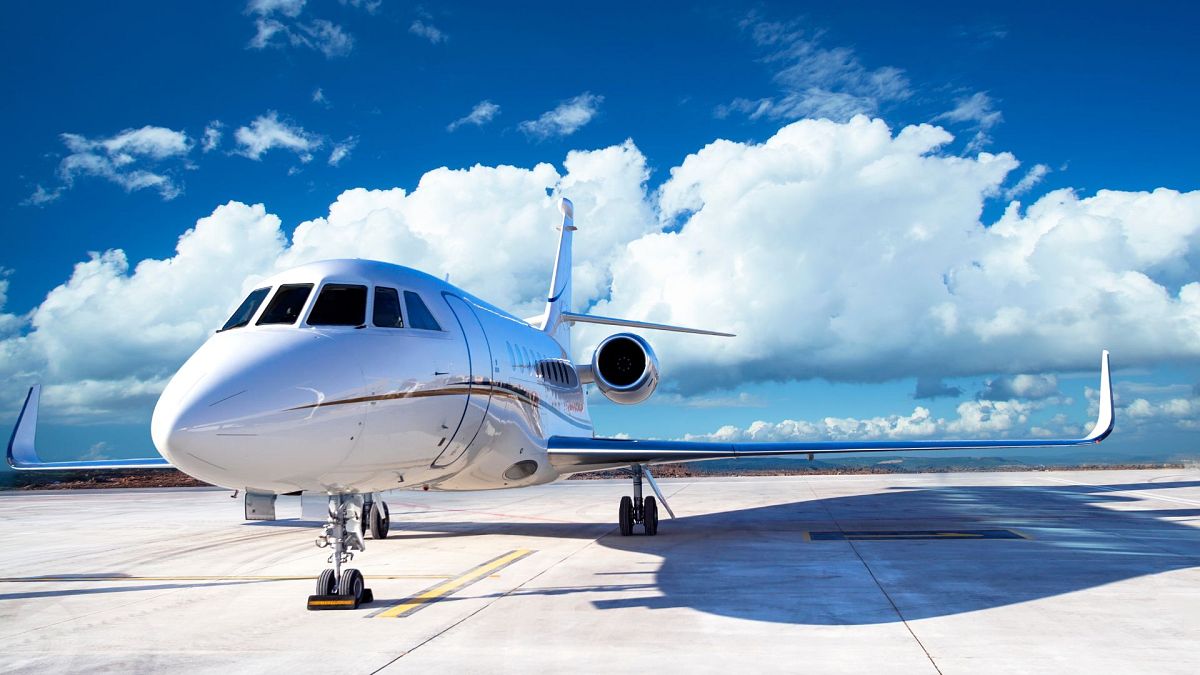Are private jets reserved for business? New research reveals flights spike during Europe’s holiday season.
Private jet users often excuse their carbon-intensive transport choice as a business necessity but a new report from Greenpeace reveals that flights to popular European holiday spots surge during peak travel periods.
Almost 118,000 flights to the 45 luxury destinations analysed were recorded throughout 2023, emitting 520,000 tonnes of CO2.
Summer saw the biggest spike, with private jet arrivals rising by 250 per cent in July versus January – indicating that the flights were likely for leisure purposes.
“While ordinary people face the devastating impacts of the climate crisis – extreme floods, droughts, heatwaves and wildfires – the ultra-wealthy continue to hop aboard their private jets under the guise of business travel, but often for leisure trips to Europe’s most luxurious holiday spots,” says Clara Thompson, transport campaigner for Greenpeace Germany.
“This extravagant luxury not only worsens environmental harm but also deepens inequality.”
Where were the most popular destinations for private jets in 2023?
During summer, warm weather destinations saw 3.5 times more private jet arrivals, with Mediterranean destinations being the most popular.
Peak arrivals for summer hotspots like Malaga, Naples and Athens mirrored those of standard chartered commercial flights, reflecting tourist trends.
In the cooler months, traffic shifted to the Alpine region, with Geneva, Salzburg and Klagenfurt in demand.
Overall, Geneva, Nice Côte d’Azur and Palma de Mallorca were the top three destinations for private jet arrivals last year.
Of the 117,965 flights analysed, almost 12 per cent covered short distances of up to 250 kilometres that could have easily been made using trains or ferries. Almost 35 per cent were short-haul flights of up to 500 km and over 93 per cent were intra-European.
How much CO2 do private jets emit?
Flying is a major contributor to EU greenhouse gas emissions, accounting for up to 4 per cent of the total in 2022.
Aviation emissions are not equally distributed: the top 5 per cent of flight emitters are responsible for over 40 per cent of emissions and the top 10 per cent for almost 61 per cent.
Private jets emit two to nine times more CO2 per seat than a typical commercial aircraft, according to the report conducted by the T3 Transportation Think Tank and commissioned by Greenpeace Central and Eastern Europe.
An average private jet flight to one of the destinations featured in Greenpeace’s analysis emits 4.46 tonnes of energy-related CO2. This is almost as much as the annual energy-related emissions of a European citizen (5.4 tonnes).

